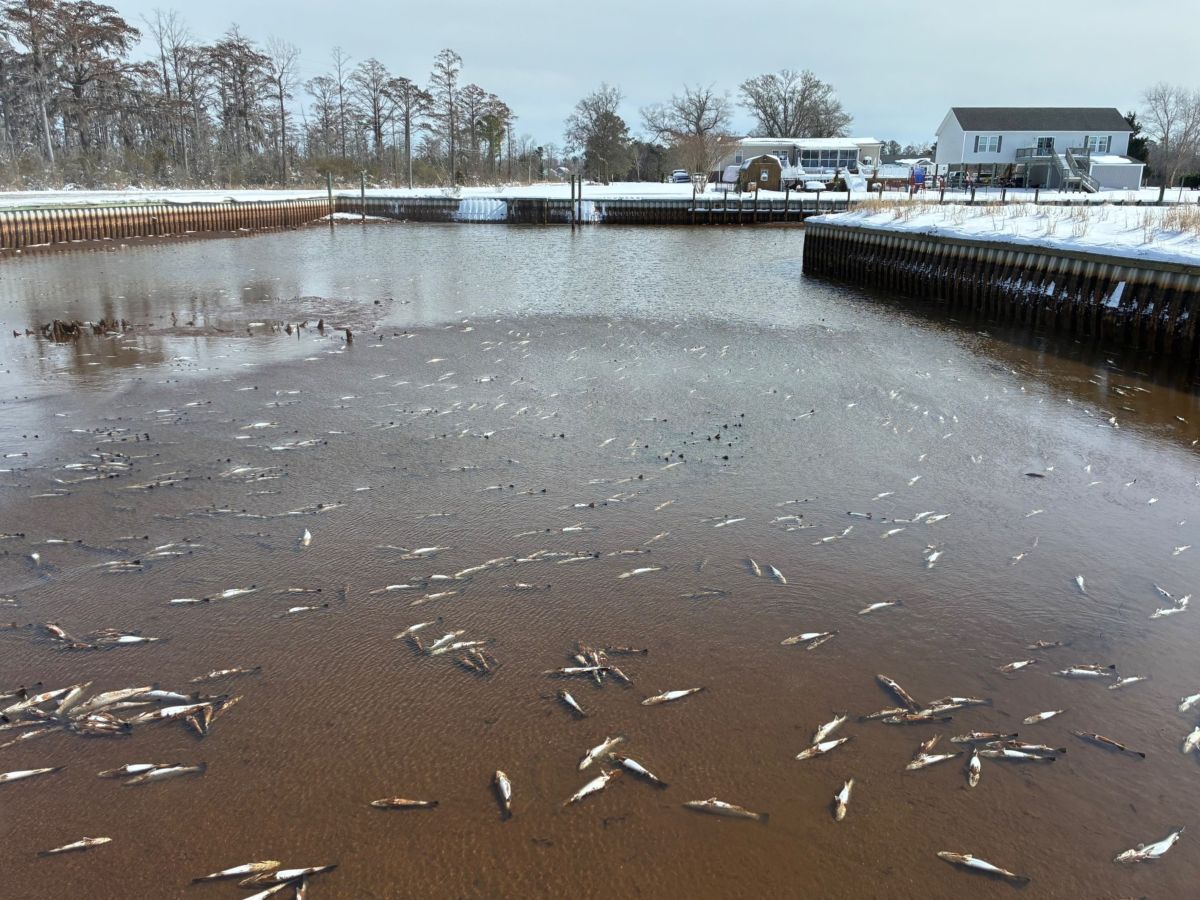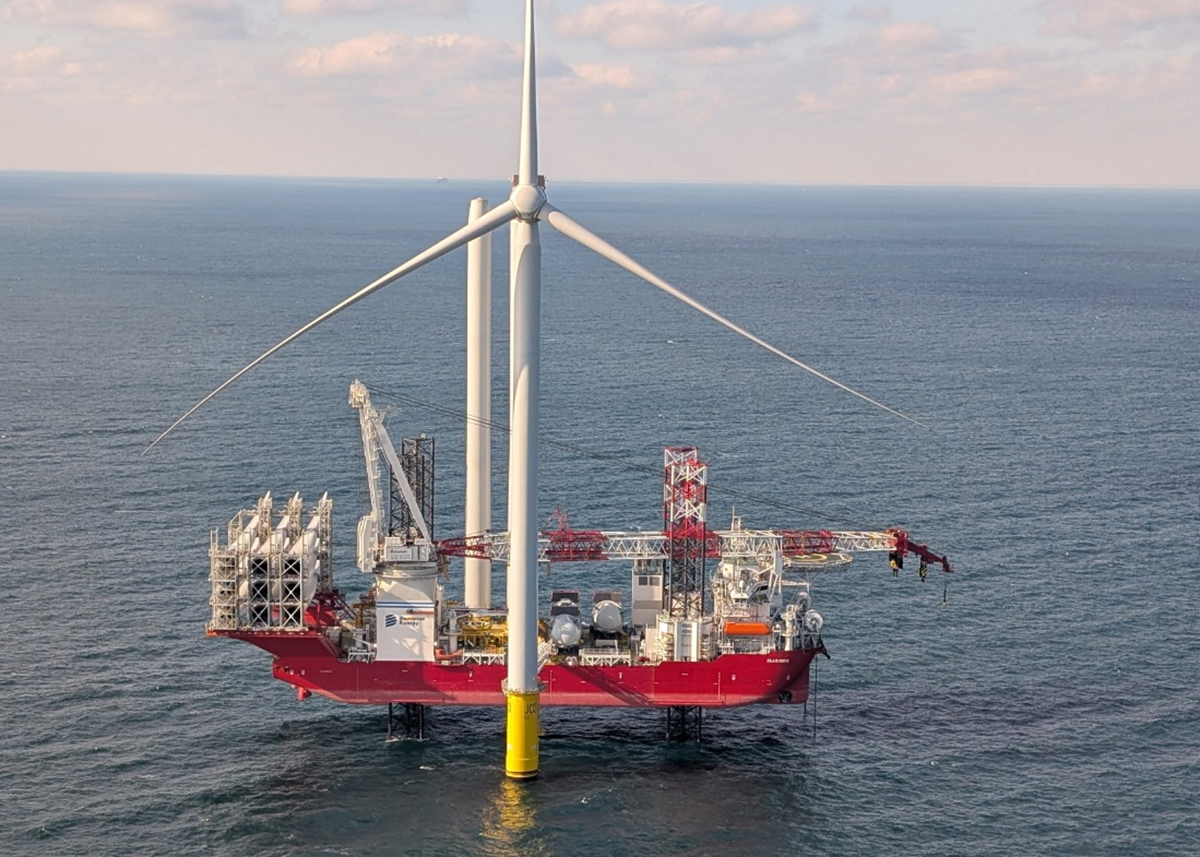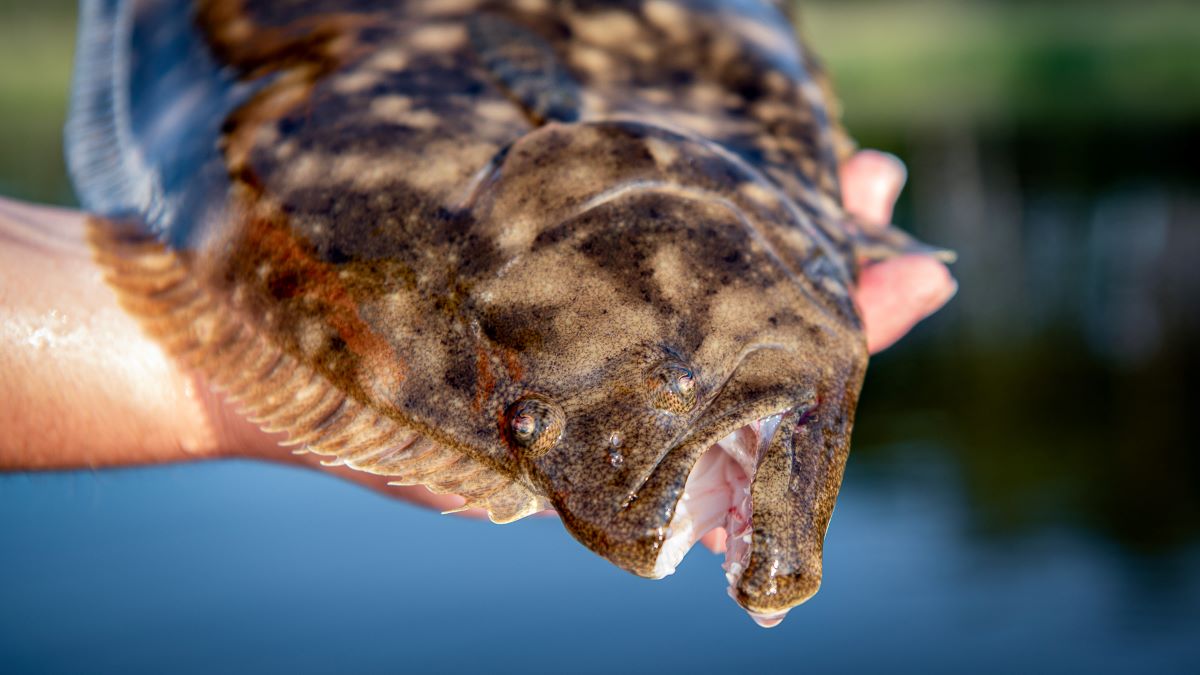
The Marine Fisheries Commission hasn’t wavered since announcing in May that there would be no recreational flounder season in coastal waters this year to compensate for the sector exceeding its 2023 allocation, and still plans to have a commercial season, despite the outrage from recreational fishers.
The Wildlife Resources Commission, which manages inland and hook-and-line fishing in joint waters, initially considered not having a recreational season this year to be consistent with Marine Fisheries.
Supporter Spotlight
But, last week, Wildlife Resources commissioners voted on a temporary rule to allow one fish per day, a minimum size of 15 inches, Sept. 1-2 and again Sept. 7-8, in the waters it manages. The commission’s existing permanent rule sets its recreational flounder season for Sept. 1-14, with the same limits.
Related: No recreational flounder season likely this year; here’s why
During the July 24 committee of the whole meeting, Wildlife Resources commissioners landed on the four-day season as an alternative to either closing the season entirely or keeping it open the full two weeks, as established by the permanent rule. The full commission approved the measure July 25.
Wildlife officials said Friday in an email response that the decision was made after considering public comments, most of which did not support the closure, “a lot of good discussion” during the July 24 committee meeting, and reviewing the data presented to the Marine Fisheries Commission on the recreational allotment available for a 2024 flounder season.
Commissioners determined that the “closure of the flounder season for 2024 is an unbalanced allocation issue. If that data suggested that closing the season was necessary as a conservation issue, the MFC would also close the commercial season. The Committee therefore recommended a 4-day season as recommended by staff,” they said.
Supporter Spotlight
Marine Fisheries Commission Chairman Robert Bizzell in a letter dated July 25 to WRC said he was disheartened to learn that the Wildlife Resources Commission is proceeding with a flounder season in inland and joint fishing waters.
“As you know, under Amendment 3 to the Southern Flounder Fishery Management Plan adopted by the Marine Fisheries Commission (MFC) in 2022, there will be no recreational harvest in 2024 in joint and coastal fishing waters,” he wrote. “Please keep in mind that when joint and coastal fishing waters are closed to flounder harvest, MFC rule prohibits the possession or transport of flounder through those waters, regardless of where the flounder were taken. Consequently, Marine Patrol officers will be issuing tickets to recreational fishermen in possession of flounder in both the joint and coastal fishing waters of North Carolina while the no-harvest provision of
Amendment 3 is in place.”
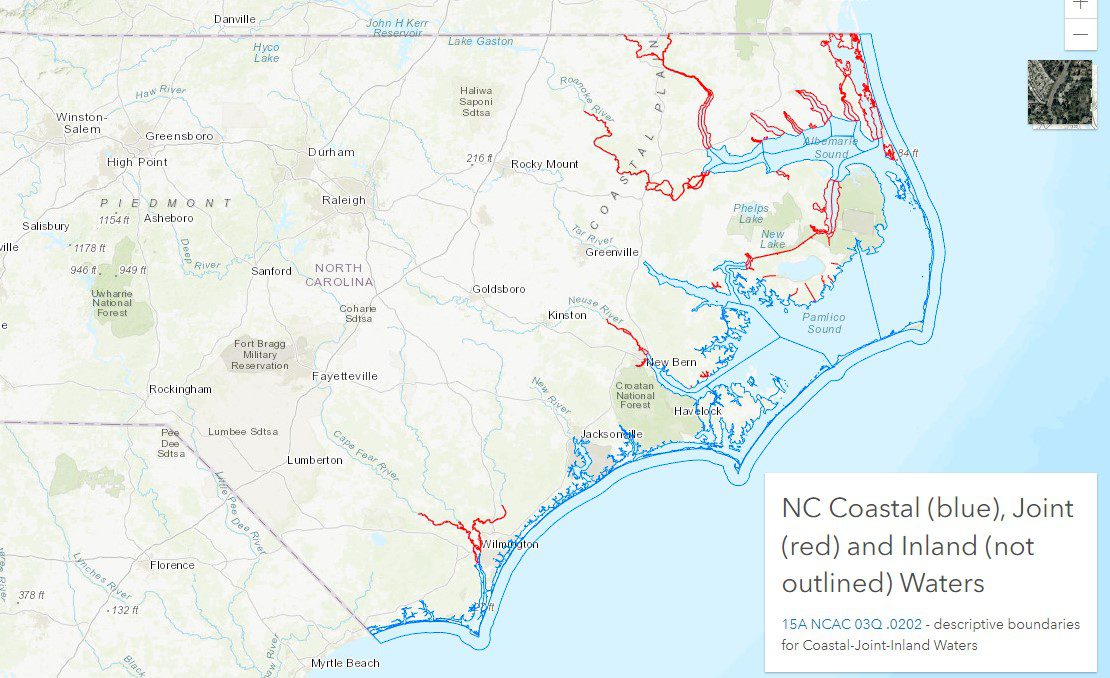
The Marine Fisheries Commission voted on the allocations when Amendment 3 to the Southern Flounder Fishery Management Plan was adopted in May of 2022 “after a deliberative process that included numerous public comment opportunities and input from various advisory committees. Amendment 3 included management measures to end overfishing and rebuild the stock within state-mandated timeframes,” division officials said in a response Tuesday.
The management measures also are to meet the established separate quotas for commercial and recreational sectors, based on the historical take by each sector, beginning in 2022 with 70% commercial and 30% recreational allocations in 2023 and in 2024, “but gradually equalizing the allocation to 60% commercial and 40% recreational in 2025, and to 50% commercial and 50% recreational in 2026.”
The 2019 Southeast Regional Stock Assessment found that southern flounder is overfished and overfishing is occurring throughout the South Atlantic. Overfished means the population is too small and overfishing means the removal rate is too high. The 2019 stock assessment led to the development of the Southern Flounder Fishery Management Plan Amendment 3 that was approved in 2022.
The amendment is to “achieve a self-sustaining population that provides sustainable harvest” and “includes robust management strategies, such as commercial and recreational quotas with pound for pound paybacks if exceeded, options for commercial trip limits, and a spring Gulf and summer flounder season for recreational hook and line in the ocean,” according to the division.
Division officials continued that the recreational catch exceeded the recreational quota.
“After subtracting the recreational overage from 2023, the recreational quota remaining for 2024 is not large enough to allow for a season opening. The Marine Fisheries Commission, during its May business meeting, discussed holding a special meeting to consider alternatives to not holding a 2024 recreational season but ultimately did not move forward with that approach,” they said.
WRC’s 2024 season decision
When the Wildlife Resources Commission proposed in June a text amendment to close its flounder harvest season for 2024, it was said to be with the intention of being “consistent with the annual quota management measure of the North Carolina Southern Flounder Fishery Management Plan Amendment 3 and with the NCDMF closure of the recreational season in coastal waters” announced in May.
Wildlife Resources’ Inland Fisheries Division Chief Christian Waters reminded the committee that Amendment 3 established the annual harvest quota for recreational and commercial sectors.
“The whole purpose behind the quota was to end overfishing in two years and to allow rebuilding of the population, which is required by statute,” Waters said.

The management plan has an accountability measure for when there’s an overage in a sector, Waters continued. The overage is deducted from that sector’s total allowable catch for the following year.
“If you go over, the next year you get less fish,” Waters said in summation.
Division officials said Tuesday that this provision in Amendment 3 mandates any overages of the total allowable catch, which includes landings and discard mortality, must be paid back pound-for-pound the following year.
“This payback mechanism was discussed thoroughly, including public comment, during the development of the plan, and it is an essential part of rebuilding the population of Southern Flounder and ensuring a sustainable harvest for future generations,” the division said explained.
After reviewing the Marine Fisheries Commission’s May announcement that there would be no recreational flounder season in coastal and joint waters, Waters reminded the committee last week that at its June 6 meeting, commissioners decided to propose a temporary rule amendment to be consistent with Marine Fisheries.
“The proposal would be the closed flounder harvest season in 2024 in the WRC jurisdiction, which would be inland fishing waters and hook and line in joint fishing waters,” he said.
Waters added that the process to establish fisheries seasons is different for the two commissions. Marine Fisheries issues proclamations while Wildlife Resources has to go through the rulemaking process.
“We have a rule on the books that says there will be a season from Sept. 1 to Sept. 14,” Waters said, and that is why temporary rulemaking is required to close the fishery for 2024.
The notice of text was June 6, and the public comment period was June 10 through July 5. During that time, Wildlife Resouces held two hearings, one online and one in New Bern.
Of the 438 that responded, 89% did not support the rule for multiple reasons, including concerns about commercial fishing, the current allocation for commercial versus recreational, the data used from Marine Fisheries, and that flounder is a public resource, Waters said. And “There was some general displeasure in general, about just the fact that we were even considering not having a season, and then there was some that expressed distrust for DMF and DMF process.”
The commission can adopt the proposed temporary rule to close Wildlife Resources waters for flounder harvest this year, or “we have the permanent rule that is currently on the books and would be in place if you don’t take action,” Waters said. “Basically, if you do not adopt the temporary rule, or some alternative, this permanent rule is what would be in place in that case, that would open it to harvest, Sept. 1-14.”
Waters recommended as an alternative a four-day season between Sept. 1-14 for 2024. The four-day season being recommended was calculated “on the fact and the assumption that if Marine Fisheries did reallocate poundage to the recreational fishery, that fish could be harvested below the conservation (total allowable catch).”
After recalculating 2024 numbers by applying the different allocation scenarios, Waters said that a 60% commercial and 40% recreational split “would, in theory, give you just under four days. That’s also based on if that reallocation occurred coast wide,” Waters said.
Wildlife Resources Commission Chairman Monty Crump recommended the shift in a letter dated June 10 to the Marine Fisheries Commission, when he expressed that Wildlife Resources was “extremely disappointed the North Carolina Marine Fisheries Commission (MFC) did not take action to open a recreational flounder season in 2024, while fully planning to open a commercial season.”
Crump continued that Marine Fisheries could do what was suggested during its May meeting and call a special meeting to take up shifting the allocation earlier than originally outlined in Amendment 3.
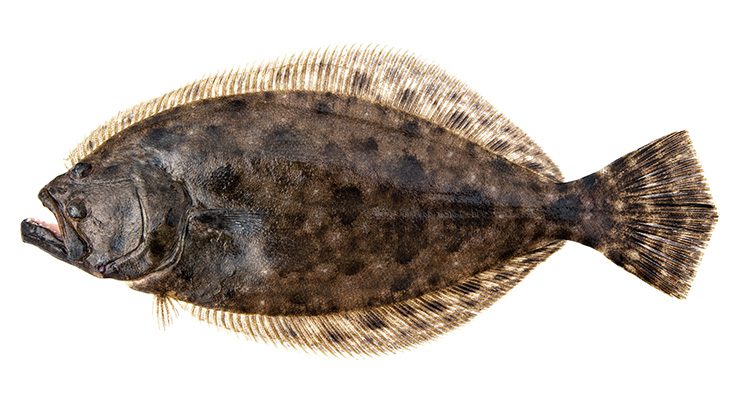
“The MFC should immediately conduct a special meeting to allocate 50% of the Total Allowable Catch to each sector in 2024 and not wait until 2026. Our recreational constituents should not suffer without a harvest season for something that was not their fault,” he wrote.
In a response dated July 12 to Crump’s Jun 10 letter, Bizzell said that the suggestion to immediately allocate 50% of the Total Allowable Catch to the recreational sector is not a new one.
“As you are aware, the MFC discussed at its May 2024 business meeting calling a special/emergency meeting to explore exactly what you suggest. However, it is very important to note the overage in 2023 was to such a degree that even with that shift in allocation now, the 2024 recreational flounder season would likely only be three or four days long,” he said.
During the discussion at the committee meeting July 24, Waters said you can’t compare how commercial and recreational seasons are determined.
Marine Fisheries monitors commercial sector in real-time because landings have to be reported daily. Once commercial sector is near filling its quota, Marine Fisheries has the option to issue a proclamation to close the season at any time. With the recreational fishery, that isn’t an option because there’s no daily monitoring.
He gave as an example a two-week recreational season. When the data comes back after the season is over, only then do you find out if there was an overage.
Waters added that Marine Fisheries studies flounder because much of the harvest occurs in coastal waters, and it’s a species that is mandated by state statute to be used when creating fisheries management plans. “And even though (flounder) do occur in our waters, and there is significant harvest that can occur in our waters, the bulk of it occurs in marine fisheries waters.”
Several commissioners voiced their frustrations at the meeting before the vote.
One commissioner said “this is the most inequitable and controversial subject matter that we deal with, and it needs to come to a head, find a solution here eventually” and several discussed the possibility of Marine Fisheries changing the allocation schedule.
Waters responded that if the original reallocation schedule that was set was followed, both sectors would be at 50/50 “and this wouldn’t be an issue. They postponed that in 2022, by two years to push that reallocation back.”
Current flounder trends
The division released its 2023 Fishery Management Plan Review Thursday that included summarizes long-term trends in catch, biological data and management through 2023 for a handful of state-managed species, including southern flounder.
An update to the 2019 stock assessment was completed this year, but the Division of Marine Fisheries and state partners had concerns, leading to the updated stock assessment not being approved for management purposes.
“In 2023, the recreational and commercial fisheries exceeded their total allowable catch, and paybacks were applied towards the 2024 seasons. The next scheduled full review of the plan will begin in 2027,” according to the division.
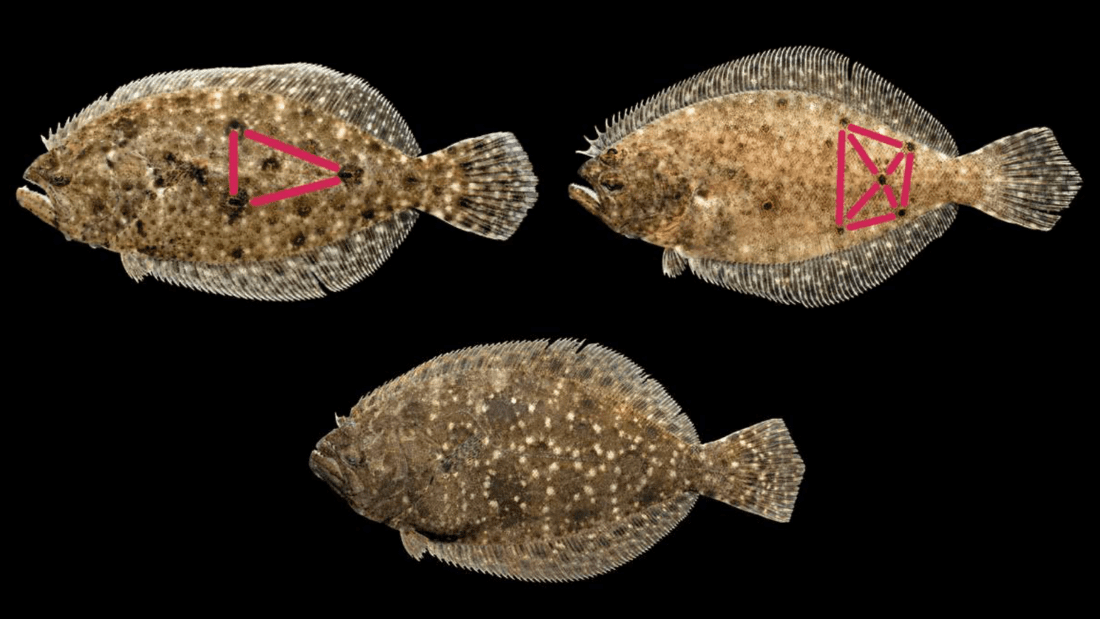
Currently harvest of any of the three species of flounder, which are southern, summer and Gulf, is not allowed, Division Public Information Officer Patricia Smith said Thursday.
“Flounder are managed as an aggregate for the recreational fishery. Regulations that effect one species effect the other two species,” Smith explained.
There is a possibility of a spring season written into Amendment 3, whether or not it occurs is based on the performance of the fishery the year before and at the division director’s discretion.
“An added nuance is that summer flounder is under the jurisdiction of the Atlantic States Marine Fisheries Commission,” she said. Overfishing is occurring for summer flounder, and Atlantic States Marine Fisheries Commission required all states to implement reductions in harvest for the 2024-2025 fishing years.
“This means that the earliest a spring season could occur for summer flounder in NC would be 2026,” she said.
Editor’s note: Our special report, Agencies at Odds: Wildlife Resources V. Marine Fisheries, is an in-depth look at the conflict between the two agencies that has been building over the last several years.





